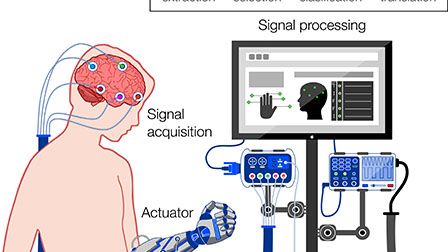DeepMind and EMBL release the most complete database of predicted 3D structures of human proteins.
Partners use AlphaFold, the AI system recognized last year as a solution to the protein structure prediction problem, to release more than 350000 protein structure predictions including the entire human proteome to the scientific community.
DeepMind today announced its partnership with the European Molecular Biology Laboratory (EMBL), Europe’s flagship laboratory for the life sciences, to make the most complete and accurate database yet of predicted protein structure models for the human proteome. This will cover all ~20000 proteins expressed by the human genome, and the data will be freely and openly available to the scientific community. The database and artificial intelligence system provide structural biologists with powerful new tools for examining a protein’s three-dimensional structure, and offer a treasure trove of data that could unlock future advances and herald a new era for AI-enabled biology.







